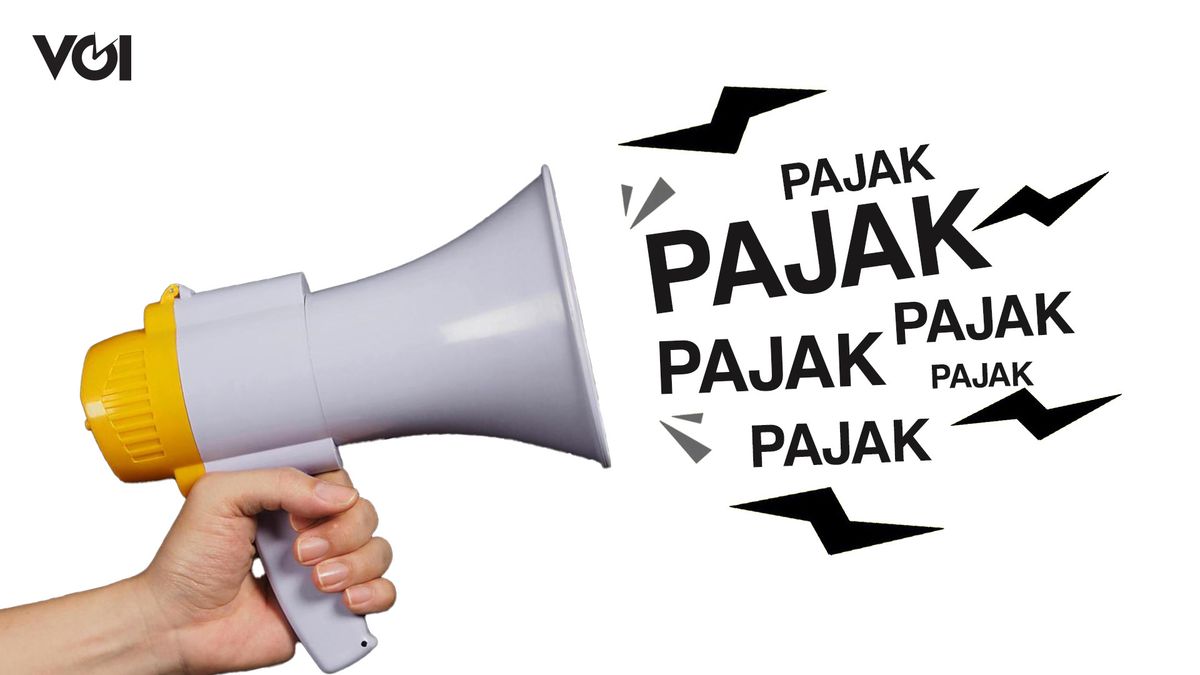JAKARTA - The sound of music, women wrapped in sexy clothes and the theme of lights is an atmosphere that accommodates everyone who wants to get entertainment and relaxation from the fatigue of their daily activities. However, soon such a lively atmosphere will turn quiet, such as a grave due to an increase in the entertainment tax which reaches 40 percent. The increase was considered to have strangled the entrepreneur and caused differences in two of President Jokowi's assistants.
The 40 percent increase in taxes that has been decided by the Acting Governor of DKI Heru Budi Hartono has created a strong resistance reaction from entertainment entrepreneurs. With the increase in taxes, it indicates that the central government wants to kill the business world which has become the highest source of income for local governments.
Chairman of the Jakarta Entertainment Entrepreneurs Association (Asphija), Hana Suryani, admitted that she was very disappointed with the policy that raised the entertainment tax in Jakarta. He emphasized that before setting the policy, the local government or the center should conduct research by going down to the roots to find out the benefits that entrepreneurs are facing in the entertainment world.
"They should be experts from this country who come down to the grassroots, make a study on the basis of implementing what the tax increase is. We as entrepreneurs have never been involved since the initial assessment. Please note that our life is currently standing on debt. Before the pandemic alone, we had a debt. Yesterday's debt has not been completed, we have added more problems with tax increases like this," he told VOI, Tuesday, January 23.
Hana compares the establishment of entertainment taxes in Indonesia with several neighboring countries, both at the ASEAN and Asian levels. According to him, tax stipulation in Indonesia is the highest in all countries in Asia.
"That's why the entertainment world here is not developing. Countries around us are like Thailand, Malaysia, Singapore all have low entertainment taxes. Malaysia itself has dropped to 10 percent, Thailand has become 5 percent, and it has been proven that it has shot up," he explained.
Penyanyi Inul Daratista selaku pemilik usaha rumah karaoke mengaku keberatan atas kenaikan pajak sebesar itu. Menurut dia sebelumnya karaoke dikenak pajak sebesar antara 10% hingga 25% masih masuk. Kini menjadi 40% hingga 75% untuk batas atasnya. Hal ini dianggap sebagai upaya secara tidak langsung sebagai pembunuhan usahaman hiburan.
If traced by the entertainment market share, this is no longer an elite and luxurious group. This entertainment market share is Generation Z and even a younger group, whose financial capacity is limited. Lowering the determination of entertainment taxes by up to 40% if totaled by the imposition of taxes, the value of other taxes can reach 100%.
"Unfortunately, the economic condition is still tenuous due to the impact of the COVID-19 pandemic and is currently only crawling. We see this tax increase as a form of government indifference to entrepreneurs. For this reason, as an entertainment entrepreneur, I reject the increase," he told VOI.
SEE ALSO:
The Voice Of Two Different Jokowi Assistants
The commotion due to the Central and Regional Government Financial Relations Law (HKPD) turned out to cause disagreements within the Advanced Indonesia Cabinet. The difference in opinion between two Jokowi assistants occurred between the Coordinating Minister for Maritime Affairs and Investment (Menko Marves) Luhut Binsar Pandjaitan and the Coordinating Minister for the Economy, Airlangga Hartarto.
Coordinating Minister for Maritime Affairs and Investment (Menko Marves) Luhut Binsar Pandjaitan revealed that the government would delay the implementation of entertainment taxes by 40 to 75 percent.
Luhut stated that his party had gathered several relevant agencies to discuss the postponement of the increase in the entertainment tax.
"Yes, yesterday I actually heard about it and I immediately gathered the agency related to the matter. Including the Governor of Bali and so on. So we just want to postpone the implementation first," said Luhut in his personal Instagram account.
He emphasized that the policy was not only from the government, but also through discussions with Commission XI of the DPR RI. Therefore, the regulation will be re-evaluated. "Then there is also a judicial review to the Constitutional Court (MK), I think we should consider it," he added.
According to Luhut, entertainment venues cannot only be seen from discotheques, but small traders who participate in selling food and drinks will also be affected by the policy. In addition, he also did not see any urgency to increase the entertainment tax in question.
"I think I'm very pro with that and I don't see any reason for us to raise taxes from there," he said.
However, the Coordinating Minister for the Economy, Airlangga Hartarto, said that the government continued to increase the entertainment tax to a maximum of 75 percent. This is because the tourism sector feels that it has started to improve, with fiscal incentives provided to support the ease of investment. However, he said the government would provide a number of fiscal incentives.
He revealed, prior to the enactment of the HKPD Law, based on Law 28/2009 there were several regions that set PBJT tariffs for entertainment services at discotheques, karaoke, nightclubs, bars, and steam/spa showers of 75 percent (Aceh Besar, Banda Aceh, Binjai, Padang, Bogor City, Depok), of 50 percent (Sawahlunto, Kab Bandung, Kab Bogor, Sukabumi, Surabaya), amounting to 40 percent (Surakarta, Yogyakarta, Klungkung, Mataram).
Airlangga explained that related to fiscal incentives, Article 101 of the HKPD Law has provided policy space for providing fiscal incentives to support the ease of investing, in the form of reduction, relief, and exemption or elimination of tax principals, principal levies, and/or sanctions.
This fiscal incentive can be given by regional heads with considerations, including to support and protect micro and ultra micro enterprises, support the policy of achieving regional priority programs or national priority programs.
The provision of Fiscal Incentives is stipulated by Regulation of Regional Heads (Perkada), by notifying the DPRD. With a regulatory room in Article 101 of the HKPD Law, the Regent/Mayor can set a tariff lower than 75 percent or even lower than the minimum limit of 40 percent.
"The application of fiscal incentives is carried out according to regional characteristics, with cultural considerations and the application of Islamic law (such as in Aceh), so that some regions can continue the existing tax rates, while tourism-based areas can set tariffs as previously tax rates," explained Airlangga.
He emphasized that President Joko Widodo had also intervened to overcome the noise in the entertainment tax by holding an internal meeting on January 19. One of his decisions regarding Fiscal Incentives is that the government will provide Fiscal Incentives to the Corporate Income Tax on Entertainment Service Providers.
"Where for the tourism sector will be given in the form of tax reduction in the form of providing government-borne facilities (DTP) of 10 percent of the corporate income tax, so that the amount of corporate income tax of 22 percent will be 12 percent," he concluded.
The English, Chinese, Japanese, Arabic, and French versions are automatically generated by the AI. So there may still be inaccuracies in translating, please always see Indonesian as our main language. (system supported by DigitalSiber.id)















